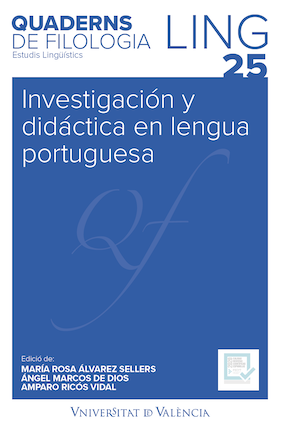Lexicographic compilation and History in the analysis of the semantic field “Conviviality and Social Behaviour”: some contributions for the study of variation in European Portuguese and Brazilian Portuguese
DOI:
https://doi.org/10.7203/qf.0.19070Keywords:
geolinguistics, sociolinguistics, lexical semantics, linguistic variation. Abstract
Abstract
This semantic-lexical descriptive-contrastive study, between European Portuguese (PE) and Brazilian Portuguese (PB), aims respectively to analyse two geographic regions: Covilhã (Portugal) and Cuiabá (Brazil). This investigation is based on the history and the semantic-lexical variation of aspects concerning the semantic field “Socializing and Social Behavior” of the Semantic-Lexical Questionnaire (QSL) applied to informants from both
geographical areas. The analysis of data allowed us to outline that the speeches were not
completely different from the lexicon of other Brazilian and Portuguese regions, according
to the research carried out at the Tesouro do Léxico Patrimonial Galego e Portugués (TLPGP).
 Downloads
Downloads
Downloads
Published
How to Cite
-
Abstract584
-
PDF (Español)350
Issue
Section
License
 Este obra está bajo una licencia de Creative Commons Reconocimiento-NoComercial-SinObraDerivada 4.0 Internacional.
Este obra está bajo una licencia de Creative Commons Reconocimiento-NoComercial-SinObraDerivada 4.0 Internacional.
Authors who publish with this journal agree to the following terms:
- Authors retain copyright and grant the journal right of first publication with the work simultaneously licensed under a Creative Commons Attribution License that allows others to share the work with an acknowledgement of the work's authorship and initial publication in this journal.
- Authors are able to enter into separate, additional contractual arrangements for the non-exclusive distribution of the journal's published version of the work (e.g., post it to an institutional repository or publish it in a book), with an acknowledgement of its initial publication in this journal.
- Authors are permitted and encouraged to post their work online (e.g., in institutional repositories or on their website) prior to and during the submission process, as it can lead to productive exchanges, as well as earlier and greater citation of published work (See The Effect of Open Access).




